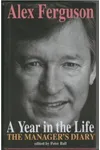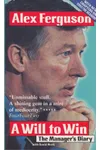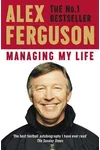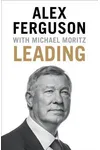Picture a fiery Scotsman who turned a football club into a global juggernaut—meet Sir Alex Ferguson! Born in Glasgow’s working-class heart, Ferguson’s journey from a shipyard apprentice to the greatest football manager in history is nothing short of legendary. His 26-year reign at Manchester United redefined the sport, blending tactical genius with an unmatched will to win.
With 13 Premier League titles, two Champions League trophies, and a knack for nurturing talent, Ferguson’s story is a masterclass in leadership and grit. Ready to dive into the life of a man who made football history? Let’s kick off!
The Making of Sir Alex Ferguson
Born on December 31, 1941, in Govan, Glasgow, Alex Ferguson grew up in a tough, shipbuilding community. Football was his escape, and he showed promise as a striker, playing for clubs like Rangers. But it was management where he truly shone. After cutting his teeth at East Stirlingshire and St Mirren, Ferguson’s success at Aberdeen—breaking the Celtic-Rangers dominance with three Scottish titles—caught Manchester United’s eye. In 1986, he took the helm at Old Trafford, a club then in disarray.
His early years were rocky, with fans skeptical and results inconsistent. Yet, Ferguson’s belief in discipline, hard work, and youth development laid the foundation for a dynasty. His ability to spot potential, from Eric Cantona to a young Ryan Giggs, set him apart.
Ferguson’s Tactical Genius and Legacy
Ferguson’s Manchester United era is defined by unparalleled success. His first major trophy, the 1990 FA Cup, sparked a golden age. The 1992–93 Premier League title ended United’s 26-year drought, and by 1999, he’d orchestrated the historic Treble—Premier League, FA Cup, and Champions League. His second Champions League triumph in 2008 cemented his global stature.
What made Ferguson unique? His adaptability. He evolved with football’s changing landscape, mastering everything from squad rotation to psychological warfare—his infamous ‘hairdryer’ rants became legend. He nurtured stars like Cristiano Ronaldo and Wayne Rooney, blending them with homegrown talents like the Class of ’92 (Beckham, Scholes, Neville brothers). His teams played with flair, grit, and a knack for late, dramatic goals, earning the nickname ‘Fergie Time.’
Beyond tactics, Ferguson’s leadership style—demanding yet inspiring—shaped modern management. His autobiography, Managing My Life, and later Leading, reveal a mind obsessed with winning, yet grounded in loyalty and trust. He wasn’t just a coach; he was a mentor, a strategist, and a cultural force.
Why Sir Alex Ferguson Matters
Ferguson’s impact transcends football. He turned Manchester United into a global brand, setting a benchmark for sporting excellence. His emphasis on youth academies revolutionized how clubs develop talent, and his longevity—26 years at one club—is unmatched in modern sport. Managers like Pep Guardiola and Jürgen Klopp cite him as an inspiration, proof of his enduring influence.
His legacy also lies in his human touch. Ferguson supported players through personal struggles, from Cantona’s controversies to Rooney’s off-field dramas. After retiring in 2013, he remained a football ambassador, sharing wisdom through books and lectures. In Glasgow, his statue stands tall, a nod to a local hero who conquered the world.
About Sir Alex Ferguson
- Born: December 31, 1941, in Glasgow, Scotland
- Key Achievements: 13 Premier League titles, 2 Champions League titles, 5 FA Cups
- Notable Books: Managing My Life (1999), Leading (2015)
- Awards: Knighted in 1999, UEFA Manager of the Year (1998–99)
Want to feel the pulse of football’s greatest era? Grab Managing My Life and step into Sir Alex Ferguson’s world of triumphs, tantrums, and timeless lessons!






